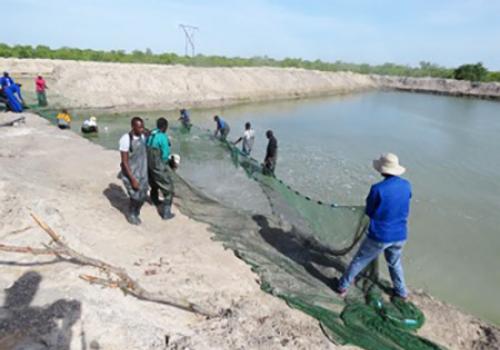The Southern African Development Community (SADC) Secretariat, in partnership with German development agency, Deutsche Gesellschaft für Internationale Zusammenarbeit GmbH (GIZ), has piloted a project on “Aligning Regional and National Aquaculture Strategic Frameworks in SADC” in an effort to strengthen national and regional linkages towards achieving regional integration objectives.
The project was implemented through the Strengthening of the National-Regional Linkages (SNRL) in SADC programme, a partnership between SADC, the European Union (EU) and the German Government as part of the regional process to domesticate, monitor and assess implementation of the Protocol on Fisheries in SADC Member States. The objective of this project is to ensure alignment between regional and national levels within the context of sustainable aquaculture development in three pilot countries of Botswana, Malawi and Namibia.
The pilot project has resulted in the development of aligned strategies, as well as many other interventions and support to national processes aimed to strengthen implementation of the protocol in the respective countries. Further, the three pilot countries are on a path to developing sustainable aquaculture value chains, as spelled out in the aligned national aquaculture strategies.
In addition, the project produced policy briefs and communication products such as success stories and factsheets, which have been handed to the respective countries’ Ministries Responsible for Fisheries and Aquaculture. The communication products will be used to raise awareness to different target groups including policy makers, fishermen and women, media, and the broader women and youths on the benefits of aquaculture and how SADC can continue the national processes in supporting fisheries and aquaculture development for the benefit of all citizens. The lessons learnt and success stories from the pilot project were also shared with the participating Member States, and these will be used to facilitate replication of the initiative in other SADC Member States.
Agriculture is among the priority sectors considered important to the socio-economic development of citizens in the SADC Region. By investing in agriculture, SADC Member States are able to leverage the benefits of regional agriculture and agro-processing value chains, access to international markets and pool resources to achieve economies of scale. The fisheries and aquaculture sub-sector is one of the components of agriculture which has over the years played a key role in providing socio-economic benefits and support livelihoods for many people and communities in the Region.
The sub-sector is important for the economic development and food security of the SADC Region as reflected in the Regional Indicative Strategic Development Plan (RISDP), SADC Industrialisation Strategy and Roadmap 2063, and the SADC Regional Agricultural Policy (RAP). Fisheries and aquaculture sub-sector has also demonstrated its role in promoting nutrition and food security, livelihoods, employment, exports and foreign currency and conservation and biodiversity values that are of global significance. It is for these key reasons that the SADC Heads of State and Government approved the Protocol on Fisheries in 2001. One of the key strategies aimed at supporting this Protocol is the SADC Regional Aquaculture Strategy and Action Plan (2016).

